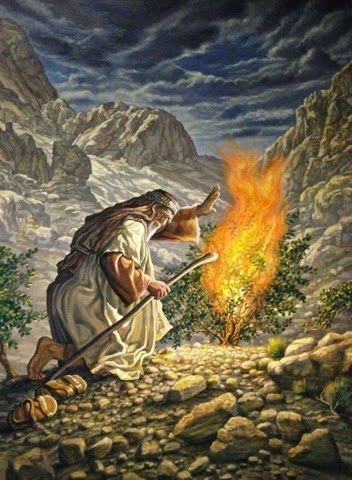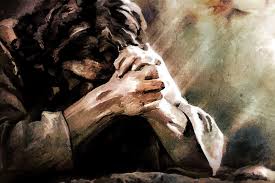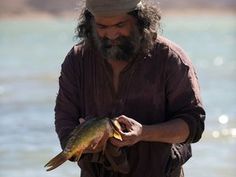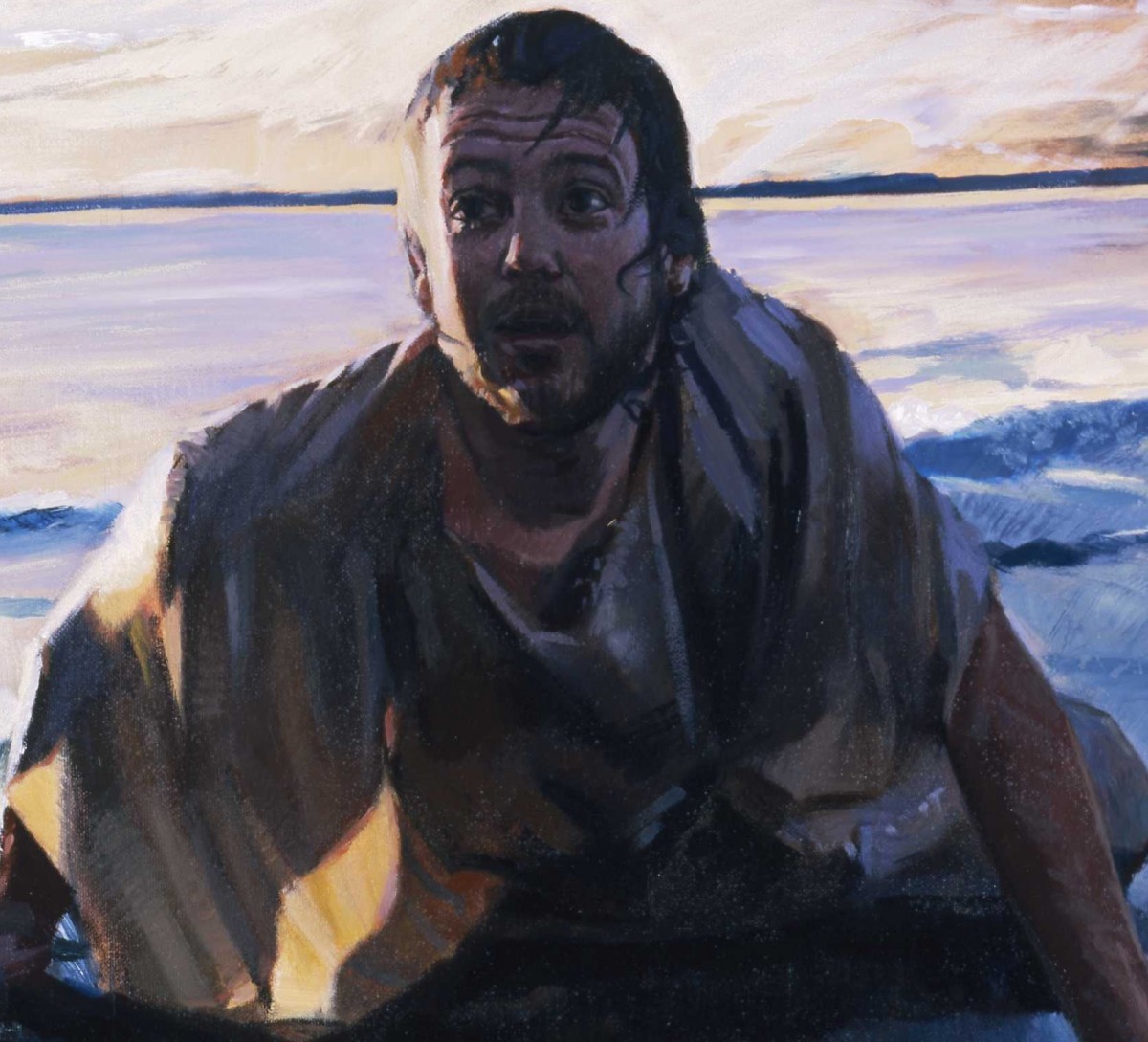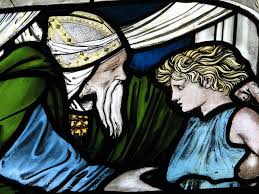Background Passages: I Samuel 30:1-6; 2 Samuel 9:1-12; I Peter 1:4; and Romans 1:17
I was probably 12 years old when it happened. During our extended family gatherings, the children piled their plates with food and sat around folding tables in my grandmother’s living room, listening surreptitiously to the adult conversations in the dining room next door, longing for the day when we could sit at the big table.
There was something maturing about sitting among the adults. The teasing among cousins in the “kid’s room” gave way to the easy listening to life lessons and good-natured banter among my parents and my uncles and aunts. I found it riveting. I also found it much easier to reach the ham and coconut cream pie.
I thought of that today when in my Bible study I came across I story I read long ago and forgot. It’s a great reminder today about why we get to sit at the big table.
Bad news travels fast.
Israel’s army routed.
Saul and Jonathan slain in battle.
As the news breaks,
panic ran rampant throughout the encampment.
We’ll call her “Eglah.”
A nursemaid for Jonathan’s son,
Mephibosheth.
The young maiden scooped the frightened five-year-old
into her arms,
raced passed the tents,
pushed through the throng of terrified people.
Into the hills they escaped,
as far from the battlefield as possible.
As she climbed the rocky path carrying the young child,
Eglah tripped on a tree root.
Stumbled and fell to the ground,
crushing the child between her and the unyielding rocks.
He shrieked in pain.
Both ankles broken,
twisted at unnatural angles.
Alone and scared,
Eglah wrapped the shattered bones as best she could,
lifted the sobbing child again into her arms
and continued her flight to the east.
Five days later, the two refugees crossed the Jordan River
Finding a safe haven in the home of a friend in Lo Debar.
A nothing place.
Off the beaten path.
A great place to hide.
Eglah.
A simple maiden.
Knew enough of the world to know
that a new king
would seek out all descendants of the old ruler
to eliminate every threat to his reign.
In terror they hid in Lo Debar
Fearful of every stranger
who chanced upon their village.
In hiding for 15 years.
Mephibosheth’s feet never healed properly,
Leaving him a cripple both in body and spirit.
Meanwhile, across the Jordan in a
conquered Jerusalem…
King David.
Stood on the balcony of his palace
overlooking the valley below.
The journey to this place difficult.
Anointed by God as a child.
The future king of Israel.
A youth spent avoiding the insanity of Saul.
Fighting battles with the Philistines.
Leading armies against the
Moabites and the Edomites.
Finally, after years of war,
surveyed the land he now controlled from Jerusalem’s walls
and declared peace.
Standing at last where God
called him to stand.
Yet on a day when all was right,
his heart rang hollow…empty.
He always envisioned sharing moments like this
with his best friend Jonathan.
David still mourned his death
after so many years.
Jonathan’s friendship had been a
God-given gift.
Standing on the balcony this day,
David remembered the promise Jonathan
asked of David so long ago.
“Please show to me your unfailing kindness
like the Lord’s kindness
as long as I live,
so that I may not be killed,
and do not ever cut off your kindness from my family…”
(I Samuel 20:14-15)
David intended to honor that covenant.
Calling for his advisors,
David asked,
“Is there anyone still left of the house of Saul
to whom I can show kindness for
Jonathan’s sake?”
(2 Samuel 9:1)
And the search began.
Eventually, David discovered Mephibosheth,
living under the radar,
out of sight,
in a nothing place on the
outer edge of the kingdom.
Read the rest of the story for yourself.
“When Mephibosheth, son of Jonathan, son of Saul,
came to David, he bowed down to pay him honor.
“David said, ‘Mephibosheth!’
“’Your servant,’ he replied.
“’Don’t be afraid,’ David said to him,
‘for I will surely show you kindness
for the sake of your father Jonathan.
I will restore to you all the land that
belonged to your grandfather Saul,
and you will always eat at my table.’
“Mephibosheth bowed down and said,
‘What is your servant,
that you should notice a dead dog like me?’
“So Mephibosheth ate at David’s table
like one of the king’s sons.”
(2 Samuel 9:6-8, 11)
I find in this heart-warming Bible story, a clear message of God’s desire for a relationship with a broken and self-isolated world. I find common ground with Mephibosheth. Any believer redeemed by God should relate to the experience of being granted grace undeserved by a king. The budding relationship between God and Mephibosheth is a perfect picture of God’s relationship to you and me.
Nothing in the realm of world politics required David to care for Mephibosheth. In fact, David’s advisors surely warned him against bringing Saul’s grandson into the city. For his part, Mephibosheth understood enough to know his life was not his own. He harbored no illusions that if he were ever discovered by the king, his life was forfeit. Kingdom politics at play. When he dragged his useless feet into the throne room, bowed before the king in sincere humility, he knew mercy was his only hope.
Nothing in the spiritual realm requires God to reach out to a sinful humanity. He is the Creator God. Our rebellion deserved punishment. Yet, he made a covenant of grace with his people. A promise he would eternally keep. Kingdom reality at play. While we deserved death, he found a way to give us new life. Mercy is our only hope.
For his part, David made a promise long ago to Jonathan, a man he viewed as a brother. It was a covenant rooted in love and watered by grace. Once he got wind of a living child of Jonathan, David found him in a desolate place…disabled, disheartened, defeated by the cruelty of life. But when he looked into his eyes, he saw the eyes of Jonathan and his heart leapt with joy. “Mephibosheth!”
It is the same celebration enjoyed by the Father and his angels when a sinner repents. God looks into the eyes of the sinner and sees the eyes of Jesus and his heart leaps with joy. “Kirk!” God celebrated in the same way when every believer bowed before the king. He longs to celebrate with every lost child who now lives in Lo Debar fearful of being discovered by a God whose heart he does not understand.
David did two things for Mephibosheth so illustrative of God’s compassion and grace toward us. First, he returned his dignity. Living so long in his nothing place, Mephibosheth saw himself equal to his surroundings. A bundle of self-loathing on crutches. Wretched. Crippled. Unworthy. A mirror image of every humiliating taunt the misguided attached to his name. In his own words, a “dead dog.” Dogs were detested in Jewish culture, considered unclean. A dead dog was a double whammy.
David did the unthinkable. He called him by name. No longer “crippled.” No longer “damaged goods.” No longer “lost,” “forgotten,” or “alone.” Look at it in the scripture. He was “Mephibosheth!” With an exclamation point, not a question mark or a simple period.
The first gift David gave to Mephibosheth was to return to him his dignity. The first gift God gives to us is to call us by name and declare us worthy of his love through the sacrificial death and miraculous resurrection of his son, Jesus Christ. All dignity we lost as sinners returned when he called us by name.
Secondly, David restored Mephibosheth all he had lost. By adopting him into his family, David restored his inheritance and gave him a seat at the king’s table. Think prodigal son. The father, watching every day, praying for his son’s return. Seeing him returning on the horizon he calls for the ring and robe and prepared a banquet in his honor. Returning him to the seat he once occupied. Far more than Mephibosheth could have hoped. Far more, he knew, than he deserved.
Is that not an amazing example of God’s grace toward us?
In his great mercy he has given us new birth into a living hope through the resurrection of Jesus Christ from the dead, and into an inheritance that can never perish, spoil or fade…kept in heaven for you…” (I Peter 1:4)
Now, if we are children, then we are heirs…heirs of God and co-heirs with Christ, if indeed we share in his sufferings in order that we may share in his glory.” Romans 1:17
Through the salvation he offers, he grants us an eternal seat at his table. Forever a child of the king. A place of belonging.
Grace is not an easy concept to grasp. We define it with two words. “Unmerited favor.” We trust it as the basis of our salvation. Though we sing it with fervor I’m not sure we understand how amazing it truly is.
God painted this beautiful picture of grace and the story of Mephibosheth was its canvas. All I know is that I was Mephibosheth and Mephibosheth was me. And today, by the good grace of God, I have a place at the king’s table.


